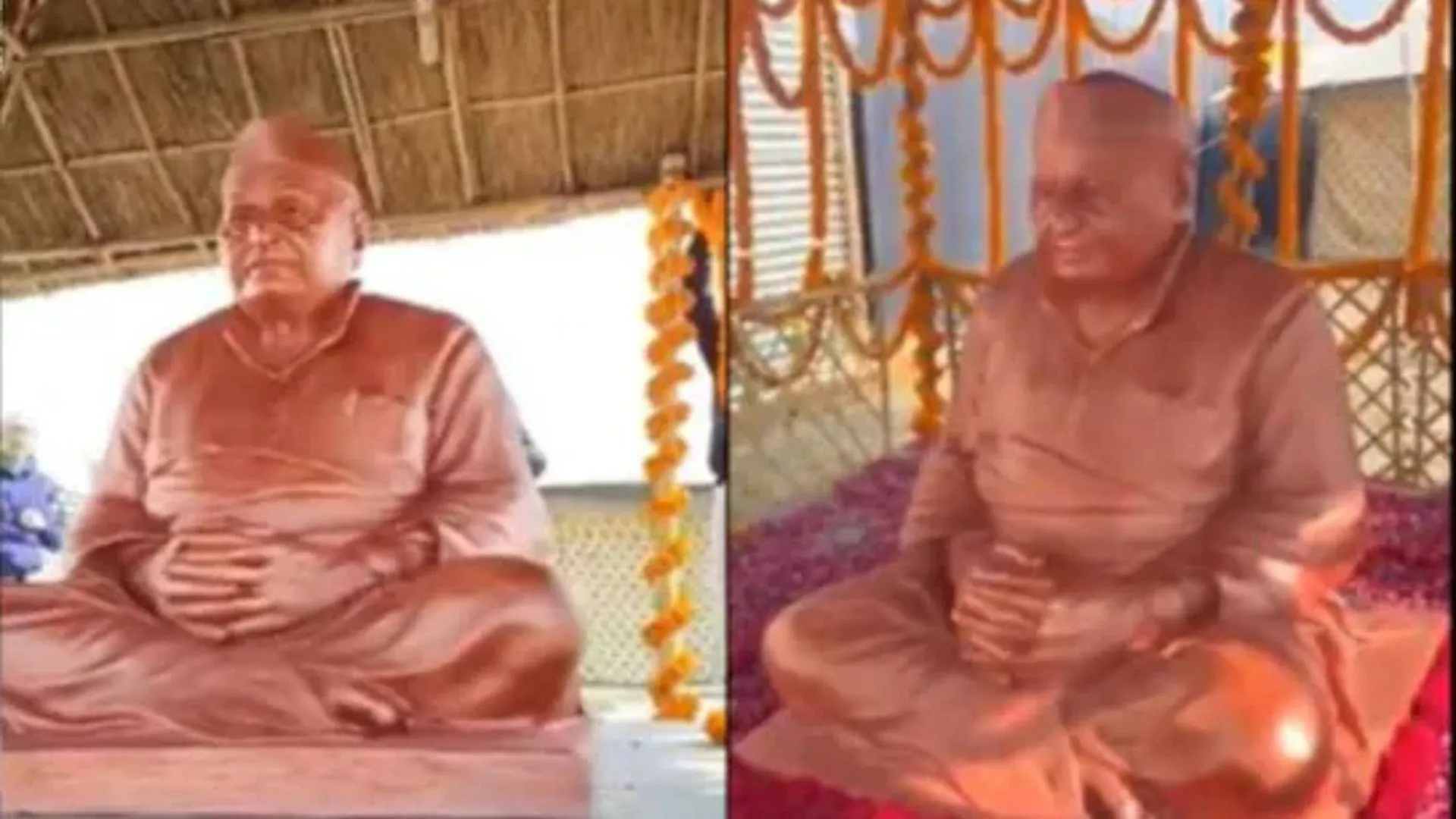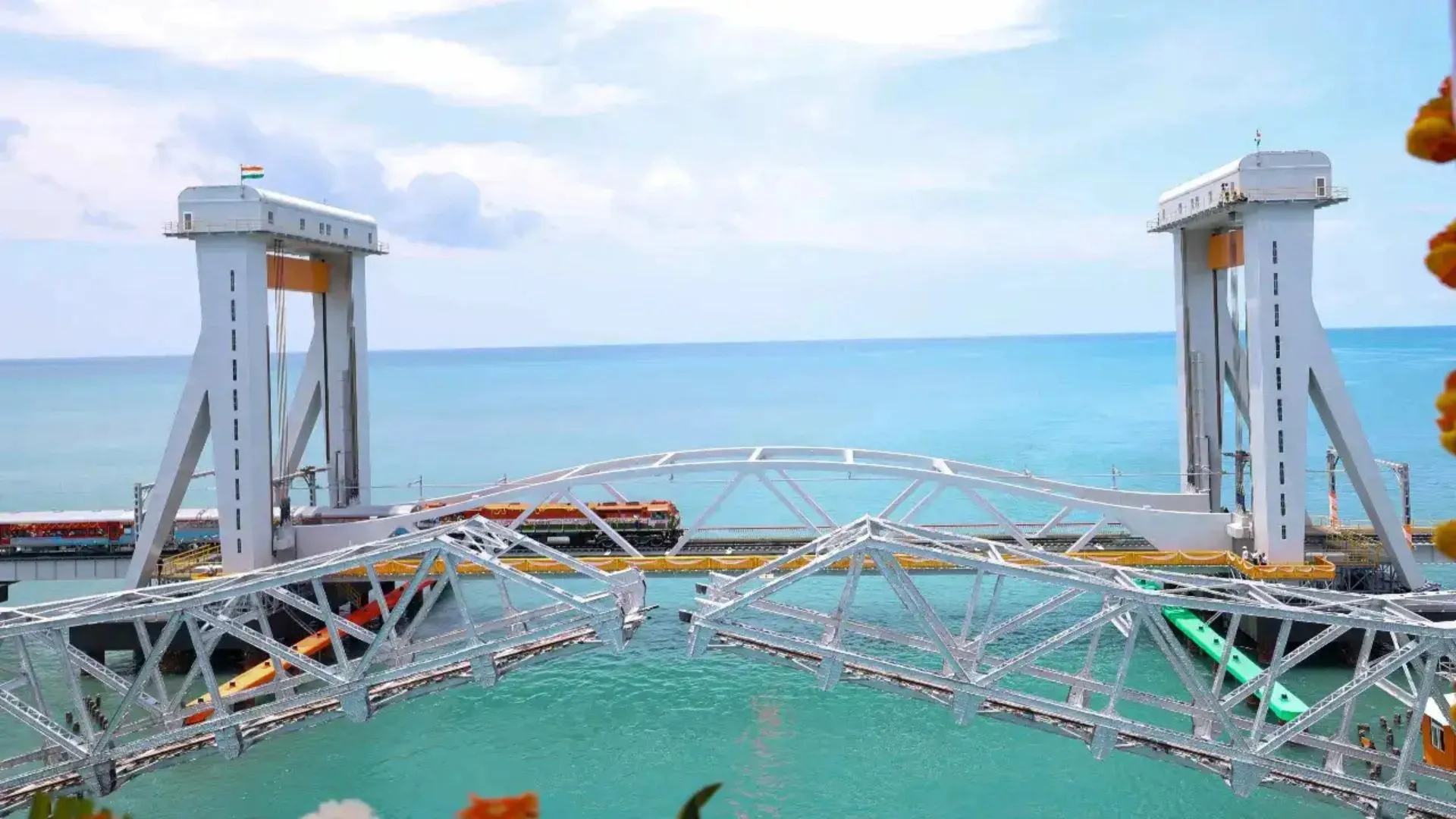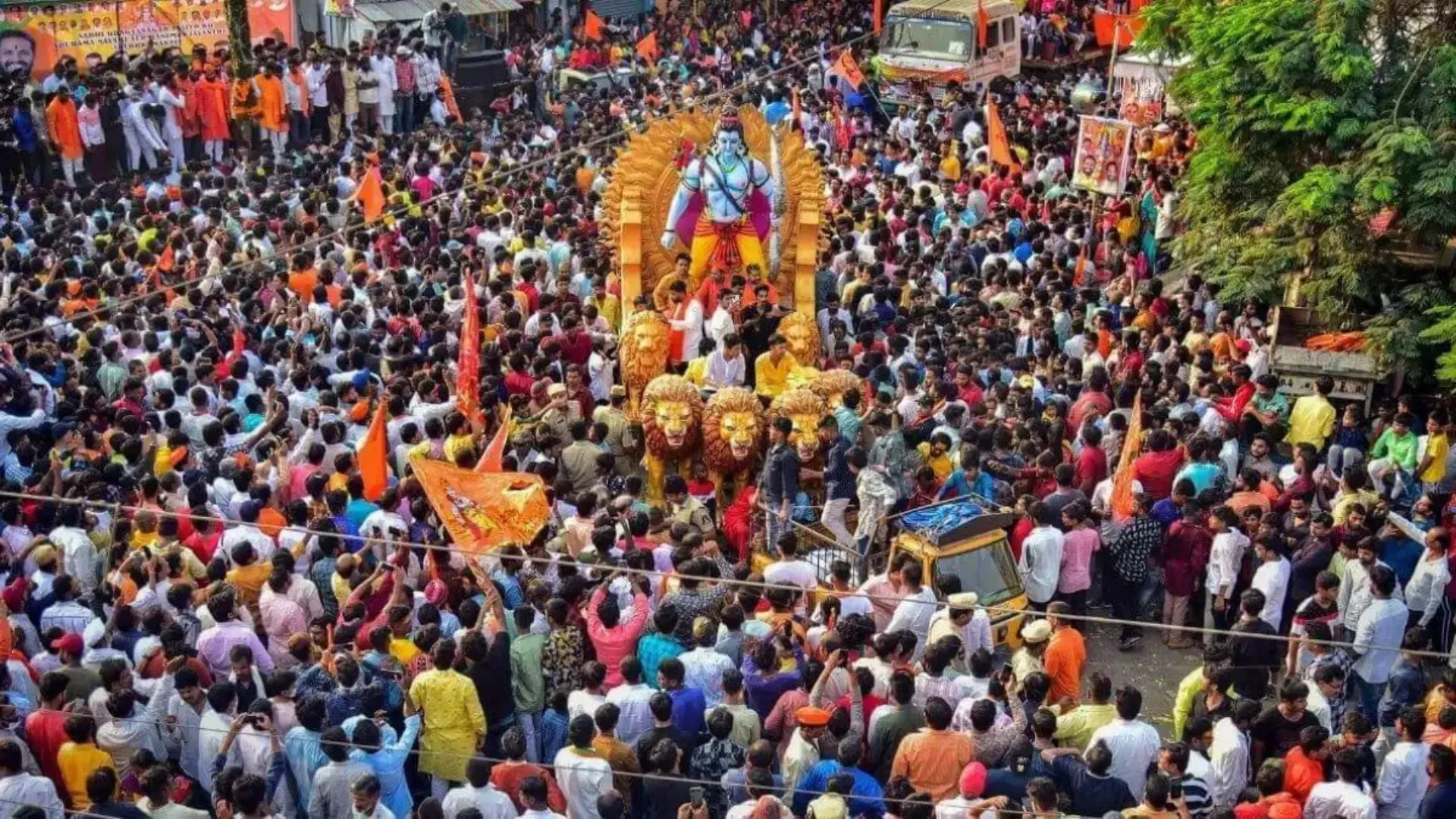The Maha Kumbh, a grand spiritual gathering, began on Monday in Prayagraj, Uttar Pradesh, drawing millions of saints, seers, devotees, and pilgrims. The city buzzed with activity as people from diverse backgrounds arrived to take a holy dip and immerse themselves in the festivities.
However, amid the spiritual fervor, a political controversy erupted when Samajwadi Party leaders installed a statue of the party’s late founder, Mulayam Singh Yadav, within the fairgrounds.
The move faced strong opposition from prominent seers and religious leaders, who criticized the inclusion of a political figure’s statue at a sacred event.
Here’s a closer look at the controversy as it unfolds.
Mulayam Singh Yadav’s statue installed
The sculpture, standing approximately two to three feet tall, was unveiled on January 13 at the Sector 16 campsite set up by the Mulayam Singh Yadav Smriti Seva Sansthan, an organization committed to preserving the late leader’s legacy.
The statue was inaugurated by Mata Prasad Pandey, Leader of the Opposition in the Uttar Pradesh Assembly, who described it as a heartfelt tribute to “Netaji” (a term of endearment for Mulayam Singh Yadav) and his enduring influence.
“He was our leader, and the camp was organised to spread his thoughts and ideas,” Pandey told PTI.
Mulayam Singh Yadav, who passed away in October 2022, remains an iconic figure in Uttar Pradesh politics. Over a political career spanning more than five decades, he served as a three-time Chief Minister and a former Defence Minister, representing constituencies like Mainpuri and Azamgarh as both an MLA and MP.
Explaining the camp’s purpose, Pandey added, “Pilgrims and other people are welcome to go to the camp, have food, and stay there.” He further clarified that the statue was installed “[symbolically]” to honor Yadav’s memory and would later be moved to the Samajwadi Party office after the Maha Kumbh Mela.
However, the statue’s installation drew criticism from the Akhil Bharatiya Akhara Parishad, the apex body of Hindu religious leaders, who disapproved of its presence at the religious event.
‘Anti-Sanatani’
Mahant Ravindra Puri, President of the Akhil Bharatiya Akhara Parishad, strongly condemned the installation of Mulayam Singh Yadav’s statue, accusing the late leader of being consistently “anti-Hindu” and “anti-Sanatan.”
He argued that the statue serves as a painful reminder for religious leaders of incidents where, under Yadav’s leadership, members of their community were allegedly “killed.”
“We have no objection to Mulayam Singh Yadav’s statue. He was our Chief Minister, and no one can deny his political significance. But what message are they trying to convey by installing this statue now?” Puri questioned.
He added, “Everyone knows about his contribution or lack thereof to the Ram temple movement. He has always been perceived as anti-Hindu, anti-Sanatan, and favouring Muslims.”
Juna Akhara’s Mahamandaleshwar Yati Narsinghanand supported Puri’s remarks, echoing the Akhil Bharatiya Akhara Parishad’s criticism of the statue’s presence. Both leaders expressed that installing the statue at an event as sacred as the Kumbh Mela, a significant Hindu religious gathering, was an insult to their beliefs.
First Day of Maha Kumbh Mela 2025: 1.5 crore took holy dip
The 45-day Maha Kumbh Mela 2025 commenced early Monday, drawing an estimated 1.5 crore (15 million) devotees who braved the biting cold to take a sacred dip at the Sangam—the confluence of the Ganga, Yamuna, and the mythical Saraswati—in Prayagraj, Uttar Pradesh.
Under tight security arrangements, crowds flocked to the Triveni Sangam to perform the holy ritual, which is believed to cleanse sins and bring them closer to moksha (spiritual liberation).
Among the throngs of worshippers, the Naga Sadhus stood out with their striking presence. These ascetics, with ash-smeared bodies, dreadlocked hair, and minimal clothing—adorned only with beads, garlands, and often smoking wooden pipes—captivated visitors from around the globe.
The spiritual fervor of the Maha Kumbh united people from across India and the world, all bound by their shared faith and devotion.
Over the next 45 days, the festival is expected to attract more than 40 crore (400 million) visitors, including international pilgrims. Adding to the significance of the event, seers have pointed out that the celestial alignments occurring during this year’s Kumbh Mela are happening for the first time in 144 years, making it an especially auspicious occasion for the faithful.





















